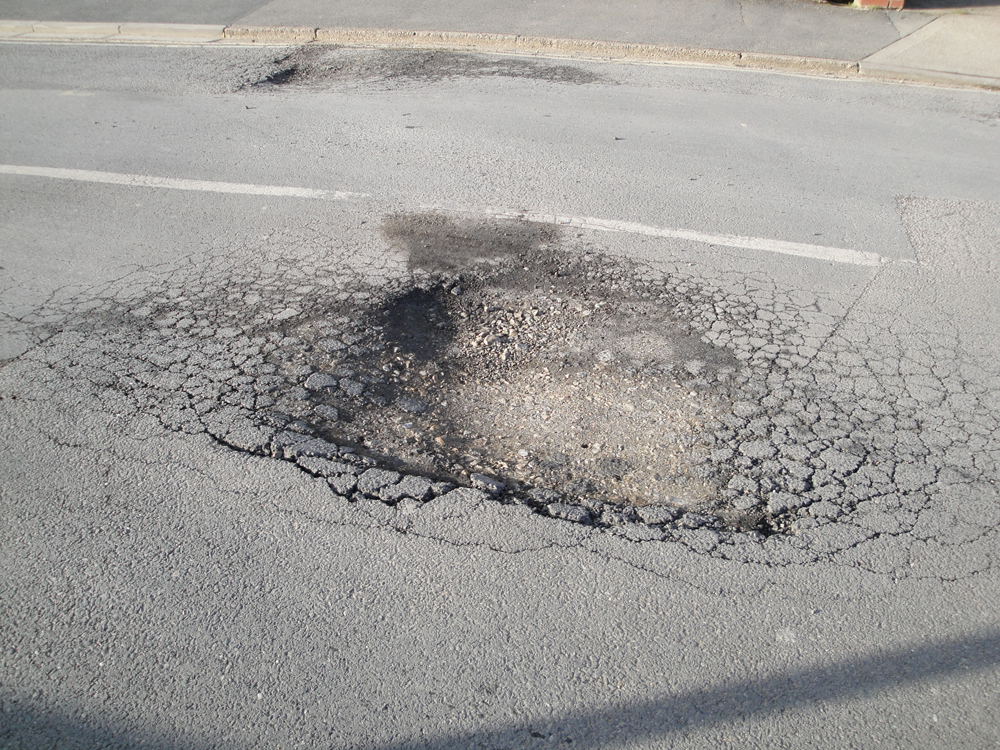| << Chapter < Page | Chapter >> Page > |
Thermal stress is created by thermal expansion or contraction (see Elasticity: Stress and Strain for a discussion of stress and strain). Thermal stress can be destructive, such as when expanding gasoline ruptures a tank. It can also be useful, for example, when two parts are joined together by heating one in manufacturing, then slipping it over the other and allowing the combination to cool. Thermal stress can explain many phenomena, such as the weathering of rocks and pavement by the expansion of ice when it freezes.
What pressure would be created in the gasoline tank considered in [link] , if the gasoline increases in temperature from to without being allowed to expand? Assume that the bulk modulus for gasoline is . (For more on bulk modulus, see Elasticity: Stress and Strain .)
Strategy
To solve this problem, we must use the following equation, which relates a change in volume to pressure:
where is pressure, is the original volume, and is the bulk modulus of the material involved. We will use the amount spilled in [link] as the change in volume, .
Solution
1. Rearrange the equation for calculating pressure:
2. Insert the known values. The bulk modulus for gasoline is . In the previous example, the change in volume is the amount that would spill. Here, is the original volume of the gasoline. Substituting these values into the equation, we obtain
Discussion
This pressure is about , much more than a gasoline tank can handle.
Forces and pressures created by thermal stress are typically as great as that in the example above. Railroad tracks and roadways can buckle on hot days if they lack sufficient expansion joints. (See [link] .) Power lines sag more in the summer than in the winter, and will snap in cold weather if there is insufficient slack. Cracks open and close in plaster walls as a house warms and cools. Glass cooking pans will crack if cooled rapidly or unevenly, because of differential contraction and the stresses it creates. (Pyrex® is less susceptible because of its small coefficient of thermal expansion.) Nuclear reactor pressure vessels are threatened by overly rapid cooling, and although none have failed, several have been cooled faster than considered desirable. Biological cells are ruptured when foods are frozen, detracting from their taste. Repeated thawing and freezing accentuate the damage. Even the oceans can be affected. A significant portion of the rise in sea level that is resulting from global warming is due to the thermal expansion of sea water.

Metal is regularly used in the human body for hip and knee implants. Most implants need to be replaced over time because, among other things, metal does not bond with bone. Researchers are trying to find better metal coatings that would allow metal-to-bone bonding. One challenge is to find a coating that has an expansion coefficient similar to that of metal. If the expansion coefficients are too different, the thermal stresses during the manufacturing process lead to cracks at the coating-metal interface.

Notification Switch
Would you like to follow the 'College physics ii' conversation and receive update notifications?